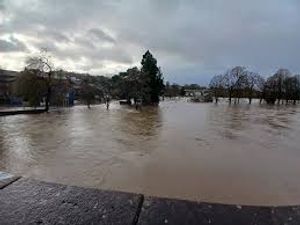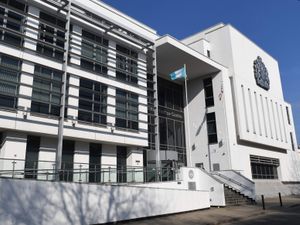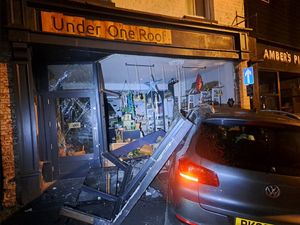Two Builth Wells town councillors have said they don’t believe Natural Resources Wales are going to do anything to tackle flooding issues in the town
Two Builth Wells town councillors have said they don’t believe Natural Resources Wales are going to do anything to tackle flooding issues in the town

Builth Wells Mayor Councillor Gwyn Davies and Councillor Mark Hammond recently attended a meeting in Llanelwedd arranged by Mid and West Wales Senedd Member Jane Dodds.
Representatives from Natural Resources Wales and members of the community and businesses from the Llanelwedd side of the River Wye most affected by the Wye’s flooding were there.
They told a recent town council meeting that the flooding meeting was to discuss some of the measures that Natural Resources Wales had undertaken on behalf of the Llanelwedd community and also to try and get undertakings from Natural Resources Wales in respect of action to alleviate the flooding on both sides of the river.
Both councillors said there was little positive news to report.
Councillor Hammond said it would appear that most of the measures they have carried out in some individual houses in Llanelwedd have been less than successful and he said from a Builth perspective, the actions they intend to take in the next five to six years or longer amount to ‘nothing’.
He said the representatives from Natural Resources Wales repeatedly referred to cost/benefit ratios and said it would not be in the interests of Welsh taxpayers, it was in effect, not worth doing anything.
Councillor Hammond said it became clear that the modelling system they have been using is 15 years out of date. The meeting was then told a new modelling system would take 18 months to design and there would need to be a few years of actually modelling the issues and going through more procedures where NRW seek permissions and licences from another part of the same organisation.
He said it was also clear that dredging or deshaling the river is not favoured by Natural Resources Wales, even though it has been proved that the method increases the rivers capacity and reduces the risk of flooding during periods of high water.
The last time the river was dredged was in 1998 and it significantly impacted on the flooding situation. There has been no action since and the flooding risk has increased in recent years.
Councillor Hammond said: “They again raised the issue of cost/benefit ratios and its not in the interests of Welsh taxpayers to address it. Natural Resources Wales seem to ignore the fact that those affected by flooding are Welsh taxpayers themselves.”
Councillor Davies said; “NRW only seem to be concerned houses if they get flooded, not on prevention methods such as deshaling. Even though we are getting the Groe and children’s playing areas flooded and covered in polluting water, the effects on shops and businesses having to clean up after a flood and on the roads being closed. I don’t believe they are going to do anything at all.”
Councillor Liam Hopkins said; “The only time they will do something is if someone is killed in the flooding.”
Members noted the report.





